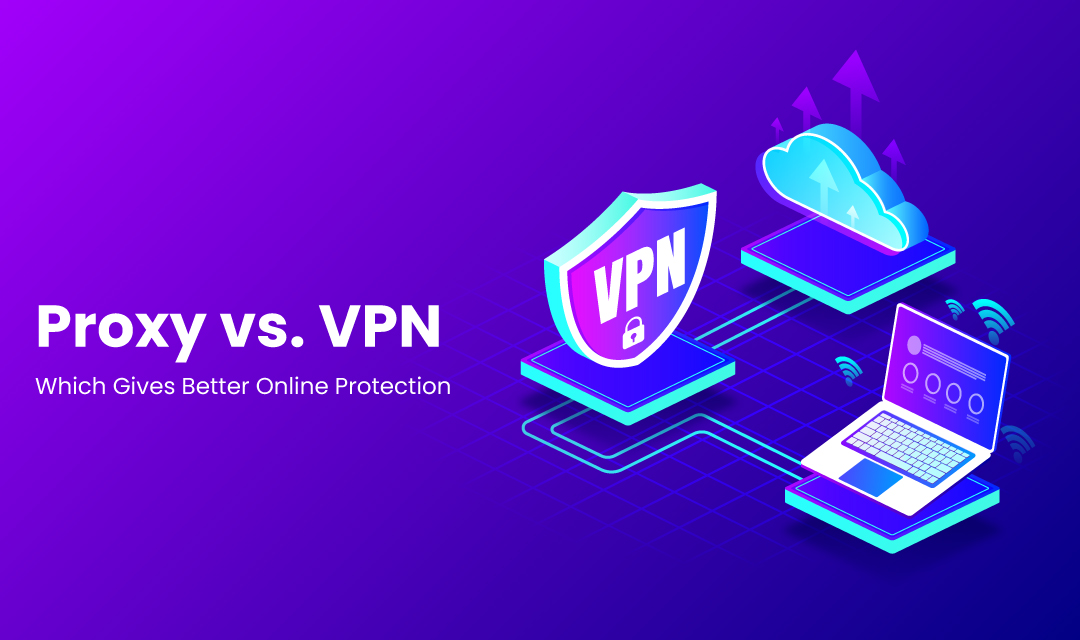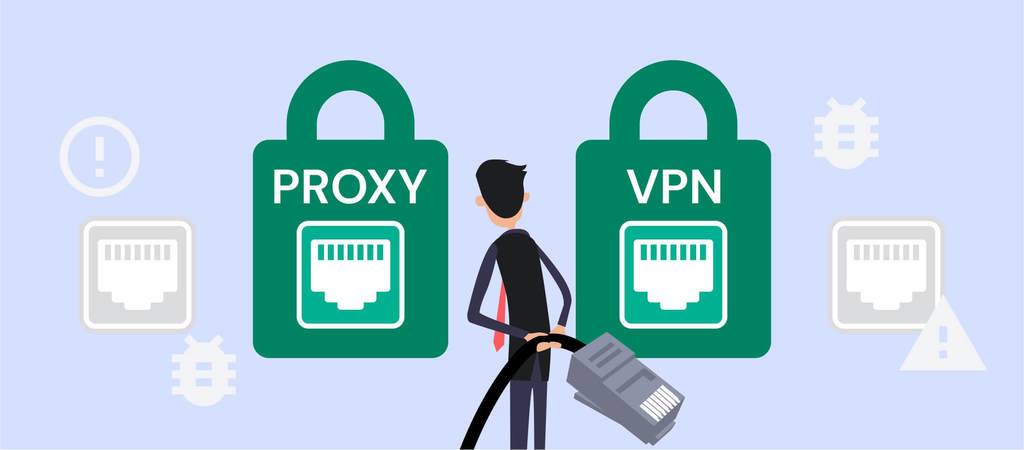Tech
Proxy vs VPN: Which is the Right Choice for Your Online Security?

As cyber dangers rise and worries about digital privacy expand, there has never been a more vital time to comprehend the online security tools at our disposal. Two of the most popular choices for enhancing digital safety and privacy are Proxies and Virtual Private Networks (VPNs).
Each offers unique strengths, yet comes with its own limitations. We’ll look at the essential features of both in our comprehensive evaluation, pointing you to the choice that best matches your needs. Additionally, we’ll highlight the advantages of using “GoProxies static residential proxies” in certain scenarios.
Introduction to Proxy vs VPN
Before dissecting the differences, let’s clarify what the differences between Proxies vs VPNs are and how they function in the digital realm.
A proxy server, at its heart, functions as an intermediary between your device and the internet. It enables you to circumvent restrictions, hide your IP address, and even filter material.
A VPN is a secure connection that is established between your device and a server in another location. All your traffic passes through this encrypted tunnel, ensuring both your data and IP address remain hidden from prying eyes.
Key Differences between Proxy and VPN:
Encryption: A significant distinction is that VPNs encrypt all your internet traffic, whereas most proxies don’t. Encryption makes your data unreadable to outsiders, providing a security layer beyond mere IP masking.
Speed: Proxies generally offer faster speeds than VPNs, as there’s no encryption process to slow things down. However, this speed comes at the cost of reduced security.
Use Cases: While both can be used to bypass geo-restrictions, VPNs are more robust and less detectable. Proxies might be preferred for tasks like web scraping, where the goal is often speed over encryption.
Security: VPNs typically offer comprehensive protection against most online threats. Proxies can protect your location and identity but might not shield you from other threats like malware.
Advantages of Using a VPN:
Enhanced Security: With strong encryption protocols, VPNs shield against various cyber threats.
Global Accessibility: VPNs can bypass almost all geo-restrictions, offering access to content from around the world.
Consistent Privacy: All applications on your device benefit from the VPN’s protection, ensuring consistent online privacy.
Advantages of Using a Proxy:
Localised Protection: Proxies can be set for specific applications, allowing for selective routing of traffic.
Faster Speeds: With no encryption, proxies usually ensure a swiffer browsing experience.
Resource-Efficient: Proxies consume fewer resources than VPNs, making them an efficient choice for tasks that don’t require encryption.
Spotlight on GoProxies static residential proxies:
When considering proxies, the GoProxies static residential proxies stand out as a robust choice. Unlike data centre proxies that come from cloud server providers, residential proxies are IP addresses provided by ISPs to homeowners. These static residential proxies:
Blend In: They are less likely to be identified and blocked, as they appear as regular users to most online platforms.
Offer Stability: Being static means they retain the same IP address, which is advantageous for tasks that require a consistent identity.
Provide Authenticity: They lend an aura of legitimacy to your online activities, as they come from genuine ISPs.
Which One is Right for You?
The decision largely hinges on your specific needs:
For Total Security: If your priority is end-to-end encryption and comprehensive protection from cyber threats, a VPN is the way to go.
For Speed & Specific Tasks: If you’re into activities like web scraping or want to mask your IP for a specific application, a proxy, especially one like “GoProxies static residential proxies,” might be more appropriate.
For a Blend: Many advanced users employ both. A VPN for total online security and proxies for specific tasks that demand speed and localised protection.
Conclusion:
The vastness of the digital realm creates a perplexing mix of enormous opportunities and substantial challenges. The technologies we use to safeguard our security and privacy while we navigate this new frontier play critical roles in moulding our experiences. Selecting between a VPN and a proxy underscores a larger dilemma in our digitally intertwined era: how do we harmonise our quest for swiftness and proficiency with the imperative of security and discretion?
In our exploration of VPNs and proxies, it becomes evident that neither is unequivocally superior. Instead, their utility is context-dependent. If we imagine our online journeys akin to traversing different terrains, sometimes we need the robust protection of an armoured vehicle (a VPN), and at other times, the agility of a bike (a proxy) serves us better.
VPNs encapsulate our online interactions in a protective shield, making them invaluable for users who prioritise comprehensive security, especially when accessing sensitive information or communicating over unsecured networks. On the other hand, proxies, especially sophisticated ones like “GoProxies static residential proxies”, offer nuanced advantages such as rapid access and localised masking, perfect for specific tasks that demand quick, undetected penetrations into the web.































